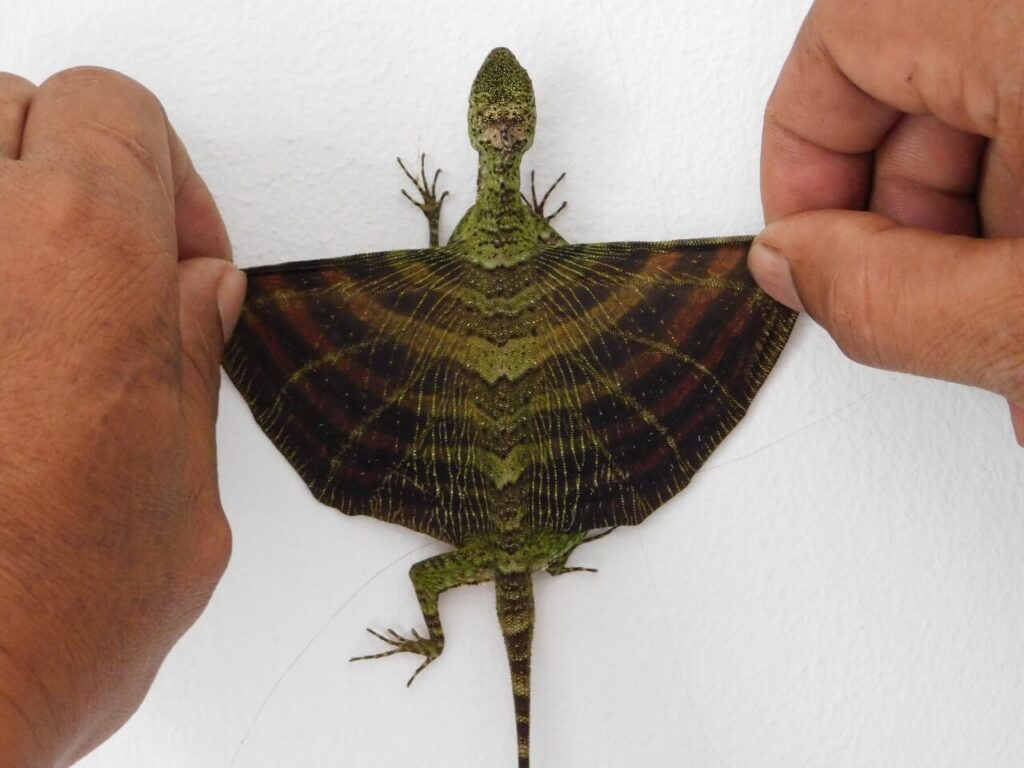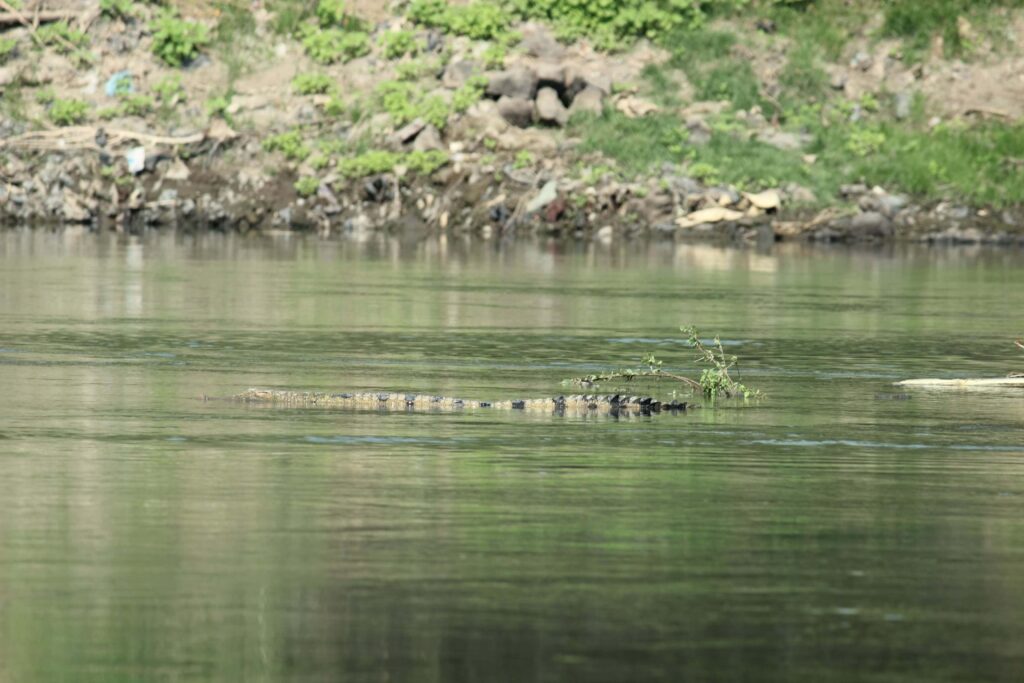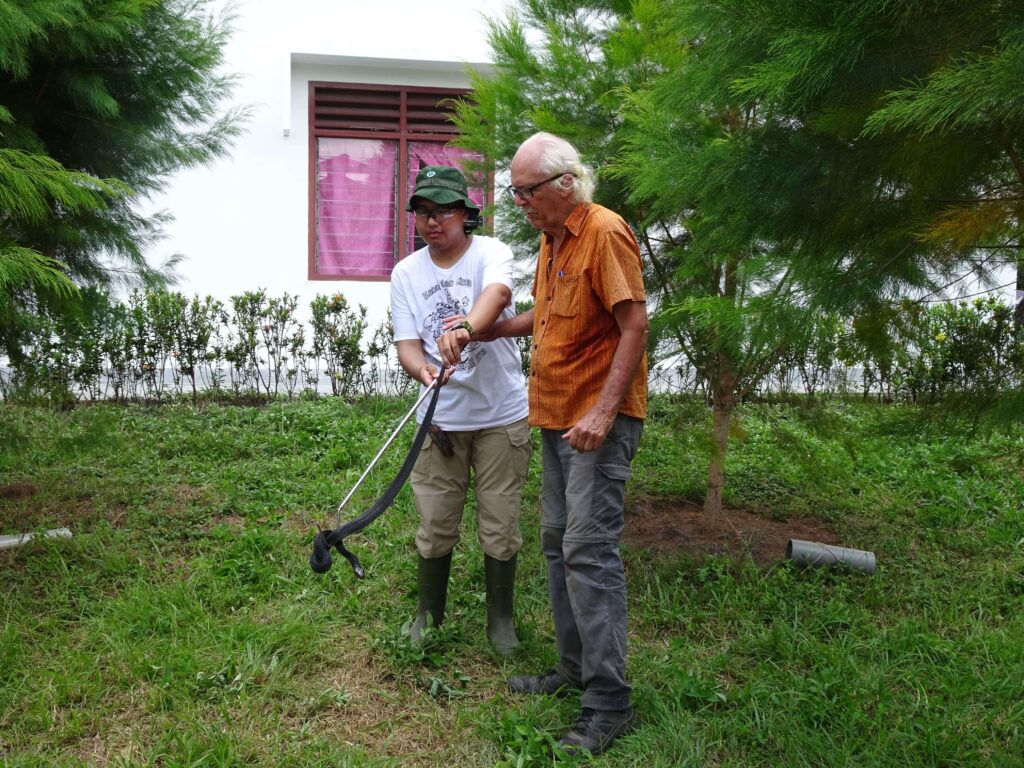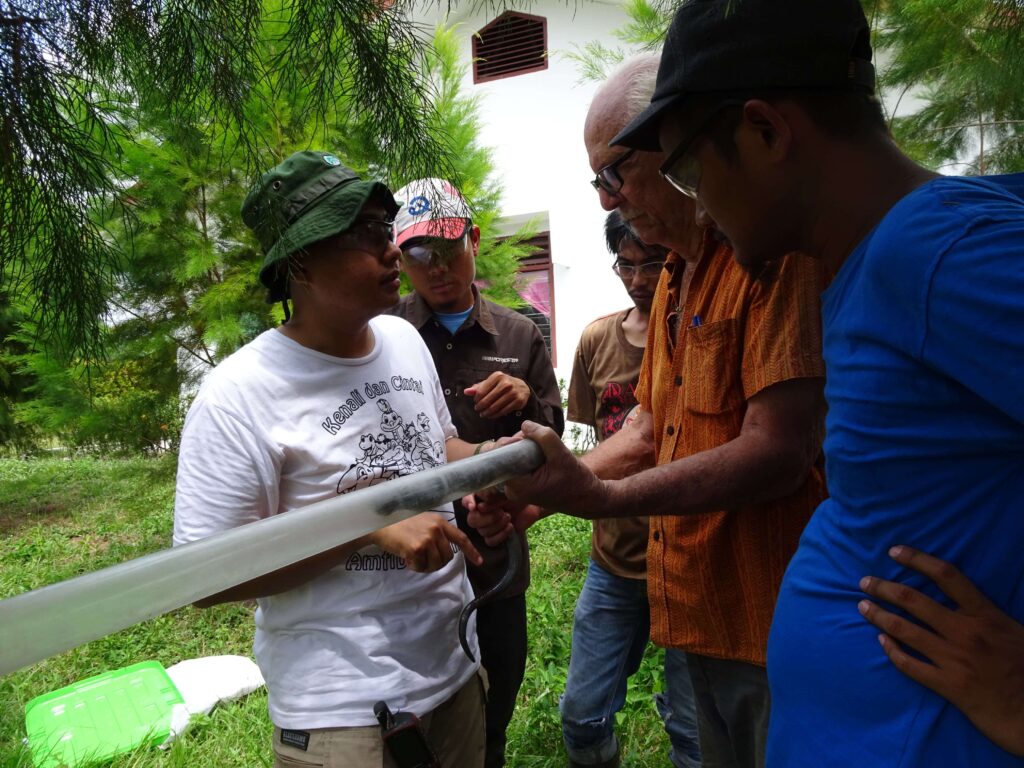KRETE’s Field Conservation Programs
Beyond observation, our programs are immersive journeys through fragile yet vital ecosystems. From crocodile-laden rivers to turtle-nesting beaches, from misty highland forests to humid wetlands echoing with amphibian calls. KRETE designs science-driven, community-empowered programs that aim to shape a future where humans and wildlife coexist in harmony. Every step, every sighting, every local voice contributes to the protection of Indonesia’s unique biodiversity.

Porong River Crocodylus porosus Monitoring Project
Conservation Monitoring | Species Protection | Community Engagement
The Porong River, located in East Java, is an important yet under-researched habitat for the Saltwater Crocodile (Crocodylus porosus). As apex predators, these reptiles play a crucial role in maintaining the health and balance of estuarine and riverine ecosystems Through this flagship initiative, KRETE is working to better understand the status, behavior, and threats facing saltwater crocodiles in the Porong River ecosystem.
Project Objectives:
- Conduct systematic surveys and population assessments using visual encounter surveys, camera traps, and local knowledge
- Monitor habitat quality and human-crocodile interactions along key stretches of the river
- Develop a community-based early warning and reporting system to mitigate potential conflict
- Raise public awareness through educational outreach and stakeholder engagement
This project integrates both scientific research and local participation to inform conservation strategies that are sustainable, culturally sensitive, and grounded in real data.
- Project Location: East Java, Indonesia
- In collaboration with local government agencies, universities, and community groups

National Park Education & Wildlife Monitoring Program
Field-Based Learning | Wildlife Observation | Conservation Education
KRETE’s National Park Program is designed to connect people—especially youth and local communities—with Indonesia’s rich biodiversity through immersive field education and real-time wildlife monitoring. Conducted in collaboration with park authorities and conservation partners, this program offers hands-on experience in ecological research and environmental awareness.
Key Focus: Night time Sea Turtle Monitoring
One of the program’s flagship activities is the night patrol and monitoring of sea turtles during nesting seasons in select coastal national parks. Participants assist in:
- Tracking nesting females
- Identifying species
- Documenting nesting behavior and threats
- Recording environmental conditions (e.g., temperature, tide)
This activity not only contributes valuable data to national conservation databases but also deepens participants’ understanding of marine life and coastal ecology.
Other Activities Include:
- Day and night wildlife tracking of mammals, reptiles, amphibians, and birds
- Habitat assessments along forest trails and coastal zones
- Guided interpretation walks focusing on biodiversity, ecosystem functions, and local conservation stories
- Conservation talks with park rangers, researchers, and indigenous leaders
Program Objectives:
- Cultivate a new generation of conservation leaders through experiential learning
- Support biodiversity monitoring in national parks as part of citizen science initiatives
- Strengthen community stewardship of protected areas through education and involvement
- Program Sites: Baluran, Alas Purwo, Meru Betiri, and select


Reptile & Amphibian Community Science
Long-term conservation begins with long-term observation. Our ecosystem monitoring projects are designed to track changes in habitat quality, species populations, and climate indicators.
Our Key Activities:
- Field Surveys and Species Inventories
Conducting systematic surveys in forests, wetlands, and river ecosystems to document species presence, behavior, and habitat conditions. - Monitoring Rare and Endemic Species
Targeted monitoring of priority species, including:- Endangered reptiles and amphibians in highland forests
- Native geckos, skinks, and snakes threatened by habitat loss
- Freshwater and semi-aquatic species affected by pollution and development
- Community-Based Conservation
Engaging local communities to participate in monitoring efforts, report sightings, and protect breeding habitats near their homes and farmland. - Outreach and Education
Hosting workshops and field school sessions on amphibian and reptile conservation, especially aimed at students, youth groups, and traditional landowners.
